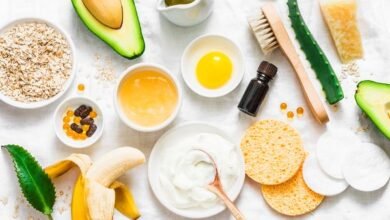Ozonated oil: what it is, how to use it, and its benefits

What is ozonated oil?
The ozonated oil is a product resulting from the application of ozone inside polyunsaturated vegetable oils . Ozone is a gas known for its antiseptic, anti-inflammatory and analgesic properties , so that the chemical reaction of this fusion is able to maintain its therapeutic properties and allows for many applications.
The oil stands out not only among the traditional means for its efficiency, but also due to a very low rate of contraindications – and although it looks new, it has been used since the 50s of the last century in Europe, the USA, the Middle East and other regions. However, in Brazil, ozonated oil treatment recommendations are still intended for topical use.
Why this?
Due to its many properties, ozonated oil is widely used in many treatments, both aesthetic and medicinal such as skin infections, bedsores, psoriasis, first and second degree burns, stretch marks, herpes, seborrhea and many more.
According to Heloisa Olivaan, a biochemist and esthetician at the Olivian Institute, general benefits of ozonated oil include:
- Improving the transport of oxygen in the blood
- Modulates oxidative stress due to its antioxidant effect
- Accelerate skin healing by acting as a bactericidal and fungicide.
“One of the main therapeutic applications of ozonated oil is its antimicrobial activity , thanks to the various oxygenated compounds that were produced during the ozone reaction,” notes the specialist.
What vegetable oils can be treated with ozone?
Any unsaturated vegetable oil can be a raw material for the production of ozonated oil. However, as explained by Heloisa Olivan, the oils most commonly used in this process are oils that have the highest concentration of oleic and linoleic fatty acids as well as lower acidity.
Among these characteristics, the following are most suitable:
Read also: Learn how to use jojoba oil on the skin, hair and nails
Benefits of ozonated oil in cosmetology
Although ozonated oil is indicated for other treatments, it is through the procedures in the skin that we note its main benefits.
In addition to cleansing and detoxifying the skin, according to Heloísa, the oil is able to stimulate cell renewal, speeding up the healing time of wounds or ulcers. In addition, it reduces other classic symptoms of flare -ups , such as swelling, redness and pain.
Due to the great antioxidant power of ozonated oil, its application to the skin is able to reduce the action of free radicals and other toxins produced by the body, which can lead to premature aging, reduced cell turnover, inflammatory processes and other types of dysfunction.
“For application to the skin, the oil most stable to retain the benefits of medicinal ozone is obtained through sunflower seeds, followed by olive oil, which is also one of the most widely used,” notes Dr. Heloisa.
Follow-up with a specialist is essential, as the professional will be able to select the most appropriate ozonated vegetable oil for the patient’s condition and type of treatment.
How does it act on the skin?
When used in skin treatments, ozonated oil helps increase oxygen circulation in the blood, detoxifying cells and contributing to the reduction of disease-causing microbes and the damaging effect of free radicals, Heloisa explained.
The specialist also highlights its work by activating fibroblasts, the cells responsible for producing and building the cellular matrix, aiding in the healing and recovery from injuries. Among the various functions of fibroblasts, there is their role in the elasticity and firmness of the skin.
What other aesthetic treatments can use ozonated oil?
A versatile substance, the ozonized oil can be used for various purposes. Specialist Heloisa Olivan cites some of them and recommends them for use. are they:
- Body deodorant: In addition to its extreme effectiveness, it can be used on sensitive and irritated skin from the aromatic substances used in conventional products. It is recommended to apply four to five drops of the ozonated oil to the armpit every day.
- Acne treatment : The ozonated oil activates the local microcirculation, enhances the detoxifying effect and prevents the appearance of spots. It is recommended to use it on the face twice daily, jojoba oil is the best choice for this purpose.
- Bruises treatment : It is recommended to apply the oil to the lesion place twice a day
- Athlete’s Foot: After cleaning the feet, apply the oil and use it two to three times a day
- Chapped lips: Apply directly to the lips to moisturize and stimulate cell renewal
- Dandruff treatment: Apply the ozonated oil directly to the scalp before washing. It is recommended to massage and leave it between 40 minutes and an hour. After that time, wash it as usual. Vegetable jojoba oil is the best option in these cases. Using it once a week can be enough to get satisfactory results most of the time.
- Dermatitis and Eczema: In these cases, it is recommended to apply the oil to the affected areas of the skin twice a day.
- Rashes: Apply directly to the affected area two to three times a day
- Earache: Using a cotton ball, put a little oil in the outer ear and massage the area. After that it is advised to leave it for an hour and remove it. Dr. Heloisa recommends using it twice a day
- Aphid Fungus: In cases of mycosis, it is recommended to apply ozonated oil twice a day directly on the affected nail.
Contraindications to the use of ozonated oil
There are contraindications to the use of ozone oil for people who are allergic to the vegetable oil used in ozone. It is recommended to do a contact test, applying a small amount of the product to some areas of the skin.
In general, ozonated oil is a safe substance that rarely causes adverse reactions. Since it is of natural origin, it can be used safely on people of all ages and for pregnant women.
Where do you find?
Ozonated oil can be found in health food stores and compounding pharmacies. There are several types of different vegetable oils available. Depending on the purpose, the specialist doctor will be able to determine the best type to use.



